The Best Movies of 2024
Is it safe to say the movies are back? Admittedly, they never really left. But it seems in this decade where every year throws up new challenges and hiccups in the industry, folks become convinced the sky is falling and cinema’s days are numbered.
Still, here we are back at the end of the year. And once again, there seems plenty to be thankful for as new cinematic images burrow their way into the collective subconscious for years to come. Whether it’s the sight of Muad’Dib standing before a nation of radicalized disciples as if he were a space-aged T.E. Lawrence, or just the cozy sight of Mike Faist, Josh O’Connor, and Zendaya sharing a ratty motel bedframe, the year has gifted us with indelible movie moments. Sometimes they’re startling visions, too, as searing as director RaMell Ross innovating what it means to place viewers inside the perspective of a protagonist in Nickel Boys; the box office enjoyed another double-header event with its own social media nickname (Glicked); and Mikey Madison showed the world how we handle things down in South Brooklyn.
It was a good year for movies. Here are our staff’s collective picks for the best of ‘em.

25. Deadpool & Wolverine
In a year notably light on mega superhero movies—we’ve had Madame Web, The Crow, Venom: The Last Dance, Joker: Folie à Deux, and Kraven the Hunter, woop-de-do—the only Marvel Studios movie on the roster was the very funny, very meta Deadpool & Wolverine. Consider it a superhero movie palate cleanser. The plot, such that it was, sees Ryan Reynolds’ Wade Wilson team up with a Wolverine variant still played by Hugh Jackman after things get timey-wimey. It’s a little bit messy and inconsequential, but that’s not really what this movie is for.
Instead it’s a swan song for Marvel icons of the past, including stars of films that never were. It’s a salute to Fox’s checkered X-Men and lousy Fantastic Four record, but also Wesley Snipes’ iconic Blade, Jennifer Garner’s time as Elektra, and even a redemption for Channing Tatum in a dream role he didn’t get to play. These are films and castings that have come and gone, and all of which seem displayed by the sale of Fox to Disney. So the narrative stakes aren’t high on the one hand, and yet on the other they are the highest. Beyond the lore, and behind-the-scenes gossip, this is a celebration for the highs and lows of a genre that meant a lot to the folks who made them, and the fans who watched them. And by the end, it suggests anything is possible in this brave new world at Marvel, with Deadpool & Wolverine ushering in the new era with panache thanks to its charismatic leads. Fun. – Rosie Fletcher
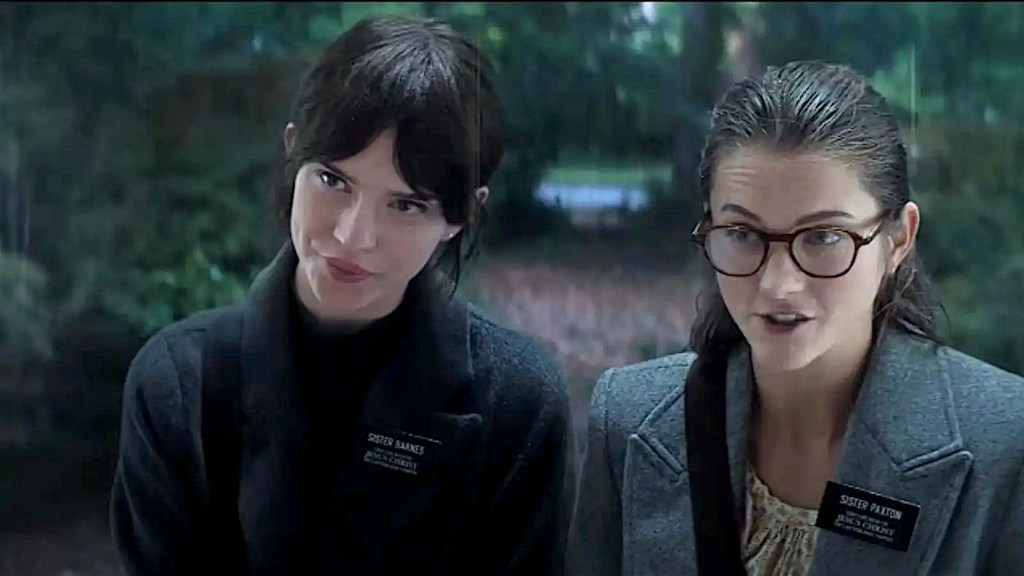
24. Heretic
I’ll let you theorize on the whys, but 2024 was a very good year for religious horror. Apartment 7A, The First Omen, Longlegs, Immaculate… heck, we can even add Conclave if we expand to thrillers. All of these movies showed how people use the mystery of faith as a tool to abuse and control others. Heretic stands out among these though for the way its villain works to strip away the mystery, all while enforcing his own limited, dogmatic worldview.
Even better, that villain is played by Hugh Grant. Written and directed by Scott Beck and Bryan Woods, best known for co-creating A Quiet Place, Heretic stars Sophie Thatcher and Chloe East as Mormon missionaries invited into the home of the seemingly kind and interested Mr. Reed, who has a unique way of lecturing about religious history. Even in his sixties, Grant still knows how to use blinky eyes, floppy hair, and a disarming smile to charm viewers, all of which makes Mr. Reed a sinister foil for the less self-assured girls. So great is the back and forth between Grant, Thatcher, and East that Heretic becomes a lesser movie in its third act when the debate gives way to more traditional scares. But the movie’s look at the potential of faith for things both wonderful and terrifying makes it a great entry in a deeply skeptical movie year. – Joe George
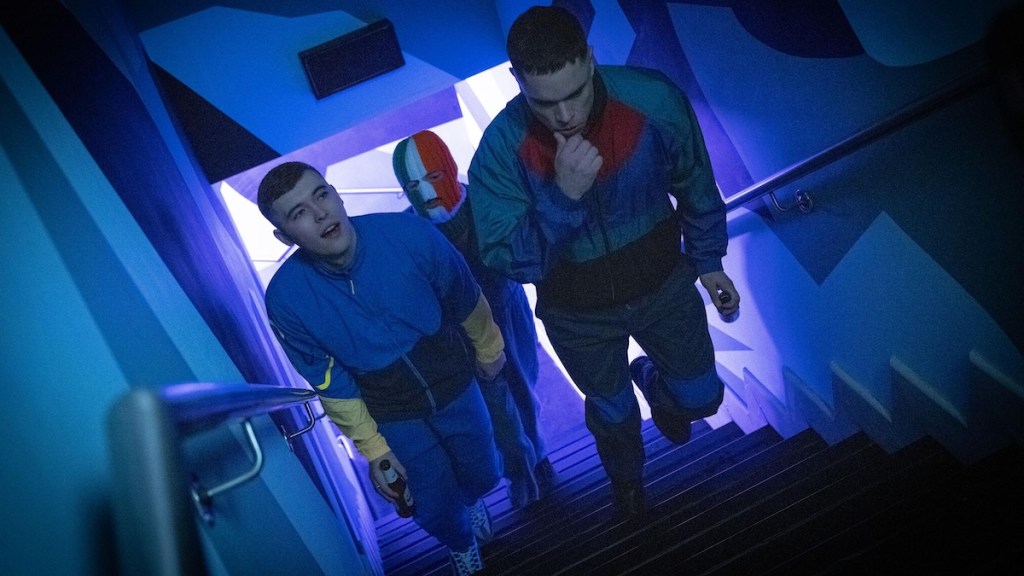
23. Kneecap
This raucous firework of a film isn’t the only one on this list to have rampaged through the festival and awards circuit, but its stars are definitely the only ones to have also played a banging Glastonbury set in the same year. Writer-director Rich Peppiatt and Irish hip-hop group Kneecap left their mark on 2024’s releases with this autobiographical story about music, rebellion, politics and drugs. (You thought Goodfellas was dusted with white powder? Those wise guys had nothing on these three Belfast rappers.)
Móglaí Bap, Mo Chara and DJ Próvai play themselves (with Michael Fassbender in the role of Bap’s character’s dad), and they do it as well if not better than any musicians on screen. Using stylized flashbacks, animation and live performances of their Irish-language tracks, Peppiatt’s film tells the story of Kneecap’s rise and battles against political censorship and local heavies. Funny, sweary and energizing, it’s a joyride that deserves the fuss it’s getting. – Louisa Mellor

22. A Different Man
There is probably not a more wily or mischievous film this year than Aaron Schimberg’s A Different Man. A transgressive dance between the raindrops of everything you’re not supposed to address in cinema anymore—or at least not without a didactic explanation of your meaning and intent—A Different Man coolly and acerbically tackles issues of identity, beauty, disability, exploitation for the sake of supposed art, the vanity of even attempting such an exercise, and myriad other taboos in its story about an actor living with neurofibromatosis (a genetic disorder that can cause facial disfigurement).
It should be added that this man is played by the incredibly handsome Sebastian Stan under layers of prosthetics until his character takes a miracle drug that makes him conventionally beautiful… only for the same guy to still lose his newfound popularity and the girl of his dreams to another man played by an actual performer with neurofibromatosis, Adam Pearson. Trust us, the film is far slipperier and cleverer than that synopsis suggests, and its dark satire about exploring struggle or loneliness through a lens as glamorous and reductive as art—and a cool beans A24 art piece, at that—finds a way to have its cake and eat it too. It also provides a wonderful showcase to Pearson who gives one of the most intelligent performances of 2024. Check it out. – David Crow

21. Civil War
When Civil War released in mid-March, it immediately received backlash for what it wasn’t. It wasn’t an incisive look at the specific politics of our day or an indictment of an increasingly lawless right wing faction. Now months later, we can finally see Civil War for what it is: an impeccably crafted depiction of people who watch atrocities but cannot stop them. Writer/director Alex Garland has no interest in taking a side for the viewer. Instead his film turns its moral gaze back on the watchers.
Nonetheless, Civil War never feels like a moral lesson thanks in part from the outstanding performances that ground it. Kirsten Dunst has never been better as Lee, a veteran photojournalist who tries so hard to be cynical, a stance challenged by her unwilling mentorship of a younger photographer played by Cailee Spaeny. The vulnerability that these performers find in their characters sets the stakes for Garland’s cold look at our ability to do nothing but watch as things fall apart. – JG
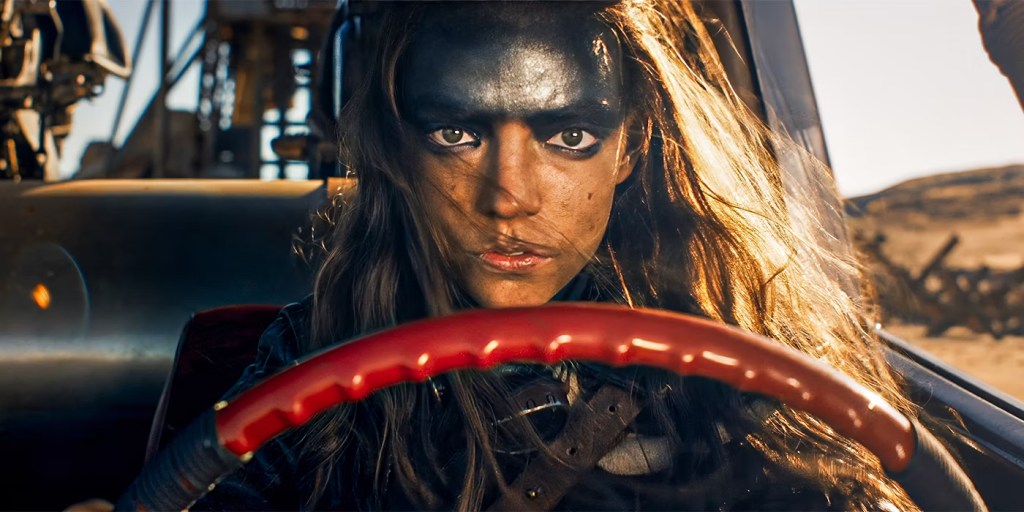
20. Furiosa
How do you follow up the greatest action movie of all time? That was the question facing septuagenarian filmmaker George Miller when he returned to the Australian wasteland that launched his career. The answer? You do it by emphasizing the pathos sometimes hidden in the explosions of Mad Max: Fury Road. Furiosa: A Mad Max Saga isn’t just a prequel that fleshes out the lore of the previous movie’s de facto hero, the Imperator Furiosa. Rather it’s an expansion of the pathos that has driven the franchise from the beginning, a reminder of the human beings who exist in the grotesque post-apocalypse.
Anya Taylor-Joy finds new tools in her actor’s kit as Furiosa, who gets taken from the Green Place as a child and put into the service of men, first Dementus (Chris Hemsworth, with a false nose as outrageous as his accent) and then Immortan Joe (Lachy Hulme). Her revenge plot is slow and methodical and not without its spectacular set pieces, including a War Rig chase that rivals anything in Fury Road. But Furiosa distinguishes itself from other Mad Max films with a more sustained look at the dignity even the maddest Wasteland denizen retains, as demonstrated by the film’s mythic heroine and her even more legendary ending for this story. – JG
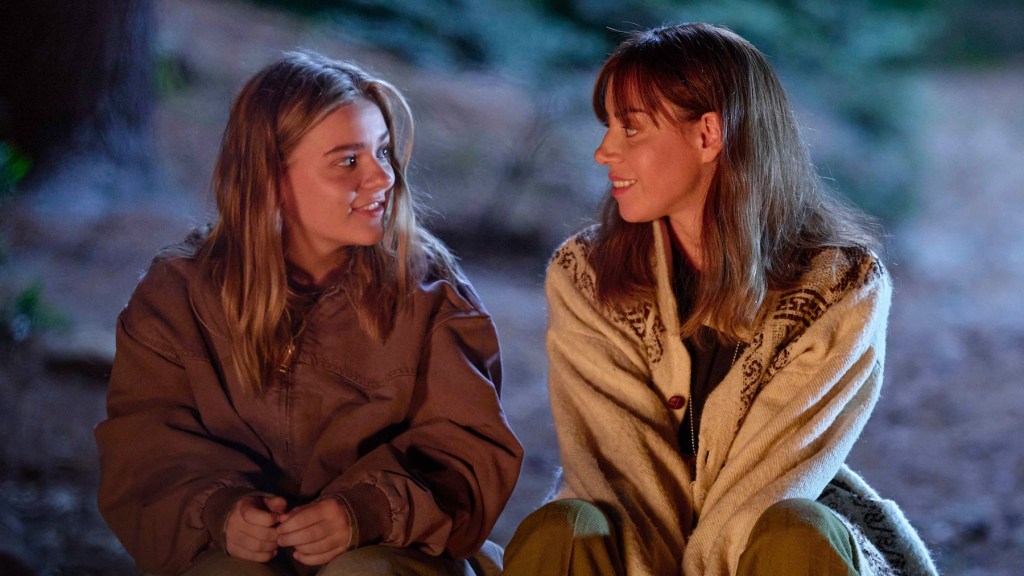
19. My Old Ass
First of all, let’s right a wrong. Of all the movies on this list, only one truly deserves the title My Old Ass, and that’s Demi Moore-starring body horror The Substance. Megan Park’s delightful coming-of-age fantasy about a Queer teenager who meets her future self while tripping on mushrooms should really be called something… nicer. That said, the name does announce Park’s movie as comedic, down-to-earth and a little raunchy, so maybe we’d best leave it untouched.
Park’s follow-up to her excellent feature debut, The Fallout, is funny and approachable without ever getting near twee or sentimental. It takes a well-rehearsed idea (what advice would you give your younger self?) and moves it in an unexpectedly poignant direction. Produced by Margot Robbie, it has a great young cast led by Nashville’s Maisy Stella as Canadian teenager Elliott, with The White Lotus’ Aubrey Plaza as Elliott’s 39-year-old (but definitely not middle-aged) self. The result is a pretty perfect look at the time of life when impatience to start adult life can blinker you to all the good childhood stuff you’ll miss when it’s gone. Fun, emotional, and coming in at under 90 minutes, it’s one for your to-watch list. – LM
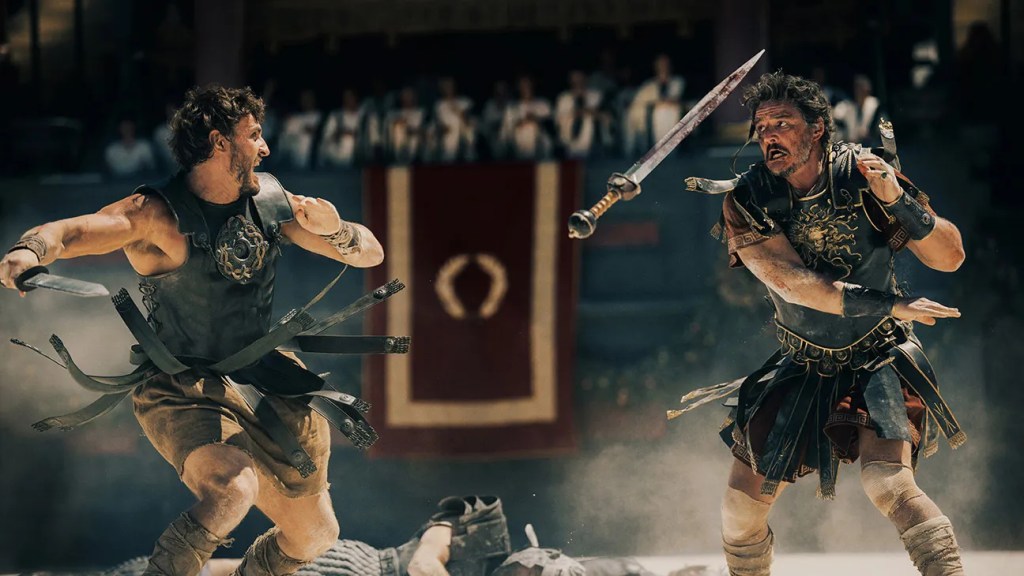
18. Gladiator II
Ridley Scott shows once again he’s the old master with this epic piece of bravura cinema. It’s none more in-your-face than when the conquered “barbarians” are battling rhinos, baboons, and totally historically accurate sharks in the arena for the amusement of despotic twin emperors Geta (Joseph Quinn) and Caracalla (Fred Hechinger). At the center of the movie is Paul Mescal’s Lucius, son of the first movie’s dead hero Maximus and the daughter of the late great Marcus Aurelius, Lucilla (Connie Nielsen). Lucilla is married to respected military man General Acacius (Pedro Pascal), by all accounts an honorable man, who is pitted against Lucius in war. Lucius is hell bent on revenge and Denzel Washington’s shady Macrinus promising him Acacius’ head it, all points to a tragic outcome that benefits no one. This film is spectacle on toast: bloody, sweaty, gory and manly. It’s worth every minute in the cinema.- RF
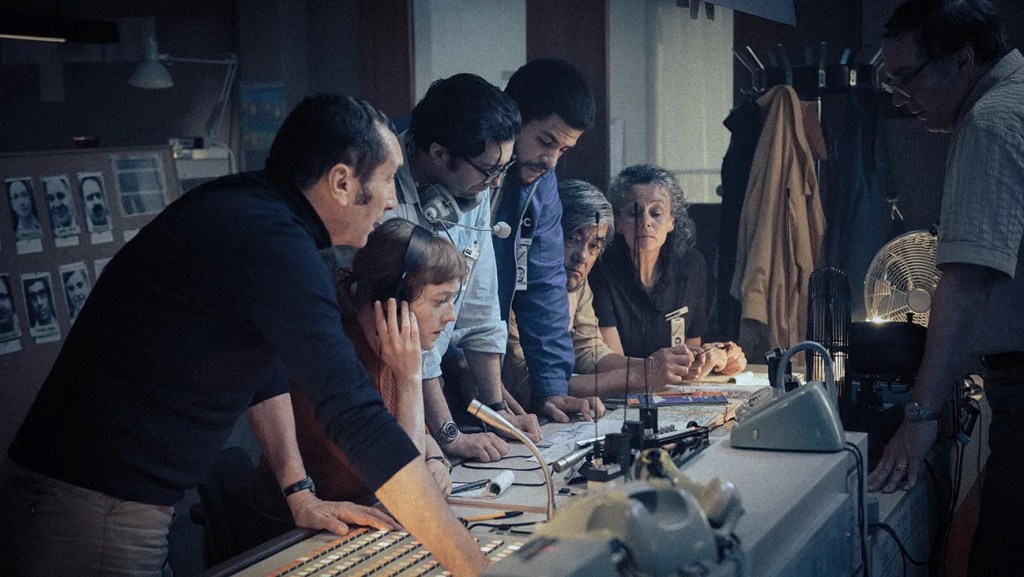
17. September 5
As relentless and tight a 95-minute ride as you are likely to experience in a cinema this year, director and co-writer Tim Fehlbaum’s September 5 is a sober-eyed recreation of the 1972 Summer Olympics Israeli hostage crisis in Munich, Germany as witnessed from the limited perspective of the ABC Sports newsroom on the ground. With a restrained, fly-on-the-wall minimalism that would have done actual 1970s auteurs like Sidney Lumet proud, September 5 basks in the dread and confusion of a newsroom witnessing an international crisis in real-time.
Rarely showy and anchored by performances that are uniformly underplayed by Peter Sarsgaard, John Magaro, Ben Chaplin, and many more, the anxiety of September 5 comes from its uncanny ability to remind any viewer of those moments where it feels like the wheels of society are coming off the bus. The film uses that queasiness to then discreetly offer a case study in the ethics of modern 21st century journalism 50 years after the fact. Nearly every principled and professional conundrum the newsroom in the film will face mirrors the daily moral hazards that digital and cable news offices around the world stare down, and the choices made on that day remain as nebulous and debatable as so much else about what went wrong in ’72. – DC
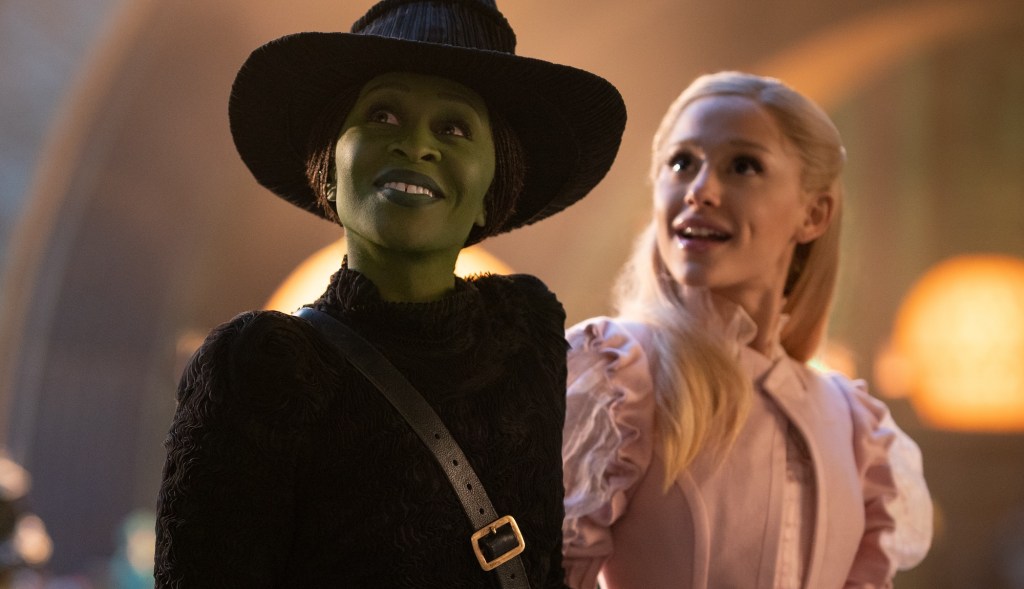
16. Wicked
Big screen adaptations of Broadway musicals are hit or miss. While some productions have left devotees with unadulterated loathing (we’re looking at you, Cats), others have reignited interest in beloved shows. However, nothing has quite hit the Hollywood landscape like a tornado over the planes of Kansas like Wicked. Based loosely on the Gregory Maguire prequel novel to The Wizard of Oz, as well as the Stephen Schwartz Great White Way spectacle, Wicked tells a recontextualized story about one of cinema and literature’s greatest villains. Fueled by two now Golden Globes-nominated performances, Wicked has rightfully established itself as one of the most successful movie musicals ever made.
Near-EGOT winner Cynthia Erivo (she’s just missing an Oscar) delivers the ultimate ‘I’m not that girl’ performance as the alleged Wicked Witch of the West, Elphaba. With a hidden ferocity behind her green exterior, Erivo’s Elphie commands the silver screen in an honest-to-goodness showstopping role, ready to defy gravity. Elphaba’s best-frenemy, Glinda, is portrayed by pop megastar Ariana Grande. While there was no doubt the singer could handle the vocal workload needed for the part, some questions arose about her acting ability. Those doubts were immediately shattered as soon as Glinda floated down onscreen. In a bubble gum-infused performance, Grande perfectly balances the 1950s starlet energy, slapstick physical comedy, and the operatic singing necessary to bring such a character to life. Between the two powerhouse leads, an excellent ensemble, impeccable set design, and miraculous attention to detail, Wicked is the rare Broadway adaptation that’ll leave aficionados dancing through life. – Lee Parham

15. Blink Twice
One of the year’s best might well have slipped under some people’s radar. If that’s you, get involved! This is the directorial debut of Zoë Kravitz and stars Naomi Ackie and Alia Shawkat as hard up waiting staff who swing an invite to the swankiest party on earth on a private island owned by Channing Tatum’s formerly disgraced tech billionaire. All, as ever, is not what it seems.
This is a clever film with an excellent script by Kravitz and E.T. Feigenbaum, and although the film falls into the territory of horror/thriller it manages to stay funny and enjoyable due to the very believable friendship dynamic of the two leads. They talk like real people and the peril is so much more meaningful for that. Tatum is great too, along with his sickening entourage of hangers-on. There’s a very obvious parallel with a particular real life monster and his influential social circle making this current as well as nightmarish. – RF
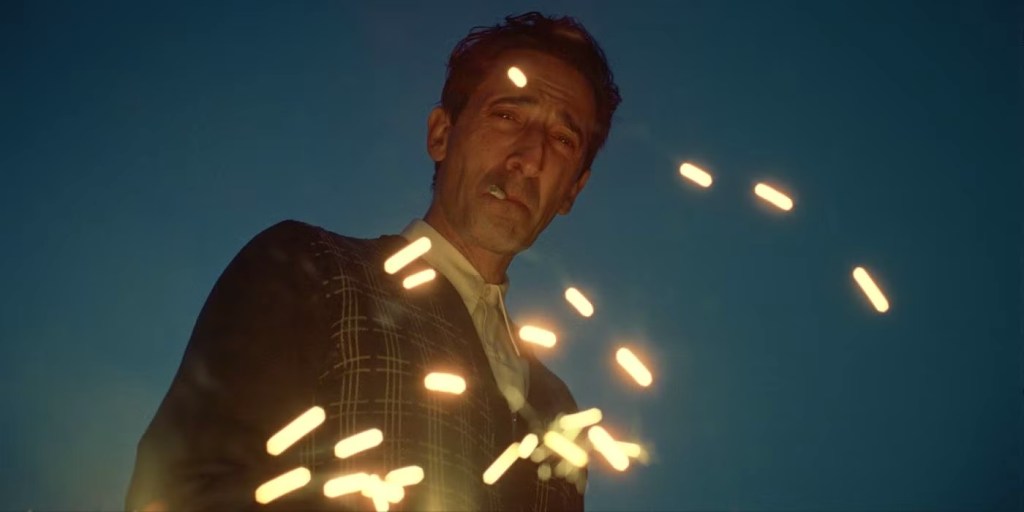
14. The Brutalist
Brady Corbet’s third directorial feature is a mammoth swing all the more astonishing in scope when one realizes this all-American epic was filmed for less than $10 million in Hungary. Perhaps that is fitting, though, since this film tracks the overlap of the Jewish immigrant experience between eastern Europe and the U.S. during a fateful moment: after the Second World War. Following in the tradition of films which run the gamut from The Godfather, Part II to West Side Story, Corbet offers a fresh and ultimately bitterly despairing vision befitting the regressive moment The Brutalist opens in.
Spanning a grandiose 215 minutes, complete with an intermission, the film tracks a career best performance by Adrien Brody as an architect who survived the Holocaust and arrives in New York harbor with nothing. He thinks even his wife (Felicity Jones) is dead. The movie is even cut in half between the years with and without her naturalization into the U.S. As he waits, Brody’s László Tóth finds success but never true acceptance or assimilation in a culture that appreciates the starkness of his artistry, but still resents his differences or even why his tastes would run toward the bleak. While the film pivots on a fragile marriage tore asunder, it is most effective as a withering metaphor about the dynamic between art and commerce, the newcomer and the moneyed All-American, as personified by László’s patronage beneath a New England blue blood (Guy Pearce). The film does not fully earn its gargantuan running time, and its reach occasionally exceeds its grasp, but this is a haunting monument to American desolation. – DC
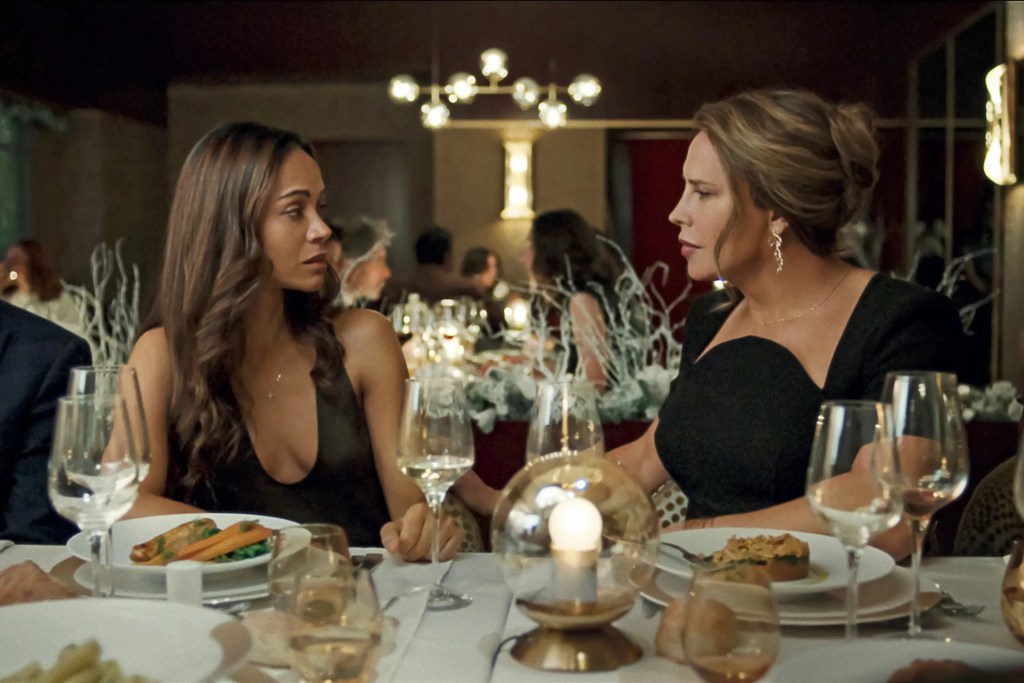
13. Emilia Pérez
It might sound like a cliché, but trust us, there’s never been a movie like Emilia Pérez. Or at least we have never seen an earnest, grounded thriller about a Mexican drug lord who pursues a sex change that transforms her ruthless life into that of a reclamation story via the newly rechristened Emilia (Karla Sofía Gascón). And did we mention it’s a musical? There are many reasons why Emilia Pérez should not work, and more than a few people will tell you it doesn’t (although not necessarily for the reasons you expect), but French filmmaker Jacques Audiard is taking such a galaxy-brained swing to the stars that we cannot help but admire his audacity, as well as the raw emotional connection he makes with the material.
It helps the story is anchored by superb performances by Gascón and an exhilarating Zoe Saldana who appears liberated after more than a decade consigned to blue CG and/or green paint (Saldana plays Emilia’s corrupt and regretful attorney). This is brazen filmmaking that happily transgresses across taboos and lines that are not supposed to be crossed. That might also run the movie into problems during its third act, but whatever thematic conclusions you can draw from its resolution, the film’s ability to recognize reclamation does not mean forgiveness or redemption is a testament to the film’s boldness… and unpredictable warmth. – DC
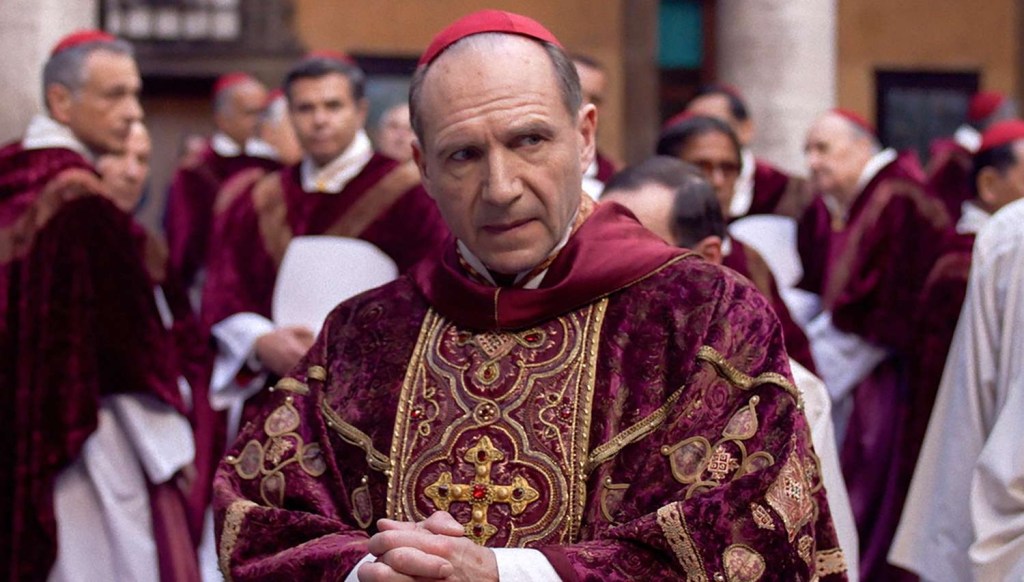
12. Conclave
There is no way director Edward Berger knew when he began adapting Robert Harris’ Conclave—a story about a shocking and spectacularly twisty papal election of a new pope—that it would release during the most surreal American election in modern times. But perhaps Berger and screenwriter Peter Straughan were simply attuned to the times in which they live, because their seemingly stuffy prestige drama about who gets to wear the biggest hat in the Catholic world is secretly a propulsive political thriller which can act as a metaphor for any power struggle happening in the world today.
A film that breaks down the tribal factions within a menagerie of cardinals along the lines of progressive and conservative, opportunistic and oppressive, Conclave is a taut mirror and gripping melodrama which witnesses Ralph Fiennes’ best cinematic work since The Grand Budapest Hotel. He plays a priest who might be losing his faith, but the film has more earthly concerns on its mind as Cardinal-Dean Lawrence must ascertain the actual mechanics of the previous pontiff’s last day on this mortal coil (and perhaps the manner of his departure), as well as which of his fellow patriarchs are pious or pernicious. The film is an embarrassment of thespian riches, including Stanley Tucci, John Lithgow, and a swaggering Sergio Castellitto as a vaping traditionalist. But look most to what Isabella Rossellini’s silent sister does eventually say, and how the film’s late 2024 arrival has turned it into an unexpected grace note. – DC
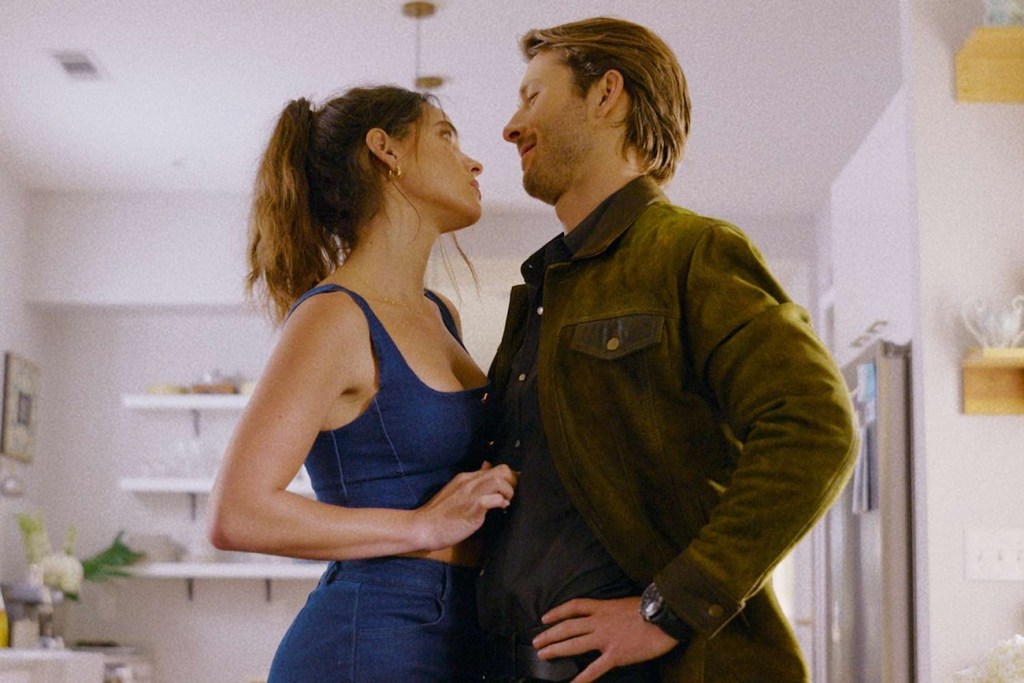
11. Hit Man
Armie Hammer. Taylor Kitsch. Every couple of years, Hollywood picks a new blandly handsome white dude to christen as the It Guy and starts putting him in movies despite the lack of any interest among the moviegoing public. So it would make sense that some viewers would dismiss Glen Powell as the latest in this ignoble line. How little they were paying attention.
A Netflix release directed by Richard Linklater hardly seemed like the movie to change anyone’s mind, but Hit Man proves that Glen Powell is, without a doubt, the real deal. It’s not that his character, affable teacher Gary Johnson, disappears into the various hired murderer personas that he constructs as part of a sting operation to catch would-be killers for the New Orleans police. It’s that he shows real, amazing comic chops, willing to downplay his incredible good looks for the sake of a laugh. Add in his steamy chemistry with an equally great Adria Arjona, and Hit Man becomes not just the most convincing argument to bring back the R-rated rom-com, but proof of Powell’s leading man potential. He’s also a pretty damn good writer since he co-wrote this film with his fellow Texan pal Linklater. – JG
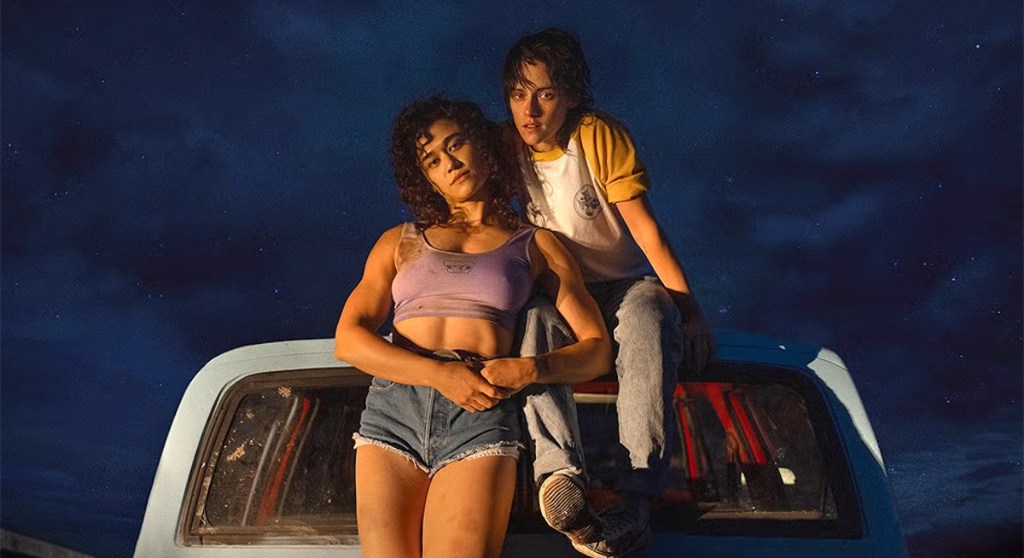
10. Love Lies Bleeding
Grimy, sweaty, and filled with desperate characters doing terrible things in the name of love, Love Lies Bleeding would leave a very nasty taste in the mouth if it weren’t for writer-director Rose Glass’ moments of visionary escapism. As she did in her 2019 debut Saint Maud, Glass pairs sordidness with flights of fancy that take this story soaring into the clouds.
Mostly though, Love Lies Bleeding keeps its feet on the grubby ground. Kirsten Stewart plays Lou Jr., a gym worker, lesbian, and the daughter of Ed Harris’ New Mexico crime boss, Lou Sr. Our Lou meets and falls for an aspiring bodybuilder (Katy M. O’Brian), whose devotion is won with a ready supply of injectable steroids. Violence, sex, and Cronenbergian body horror follow as the film charts the messy degradations people will suffer for love. – LM

9. The Wild Robot
There are countless animated family movies about finding your tribe and fighting for it, but none quite as beautiful as DreamWorks’ The Wild Robot, nor with quite such revolutionary subtext. From former Disney writer, character designer, and voice actor Chris Sanders, The Wild Robot combines dreamy landscapes with comedic characters and a no-punches-pulled look at nature red in tooth and claw.
The film tells the story of Lupita Nyong’o-voiced ROZZUM Unit 7134—Roz for short—a cyberunit who washes up on the beach of a remote island populated by an ecosystem of animals who prey on each other mercilessly. Can these natural born killers defy their programming to work together and survive the winter? Can Roz defy hers to raise an orphaned goose chick to adulthood? Both a ripping adventure and a thoughtful modern parable about not letting division destroy community, it’s not to be missed. – LM
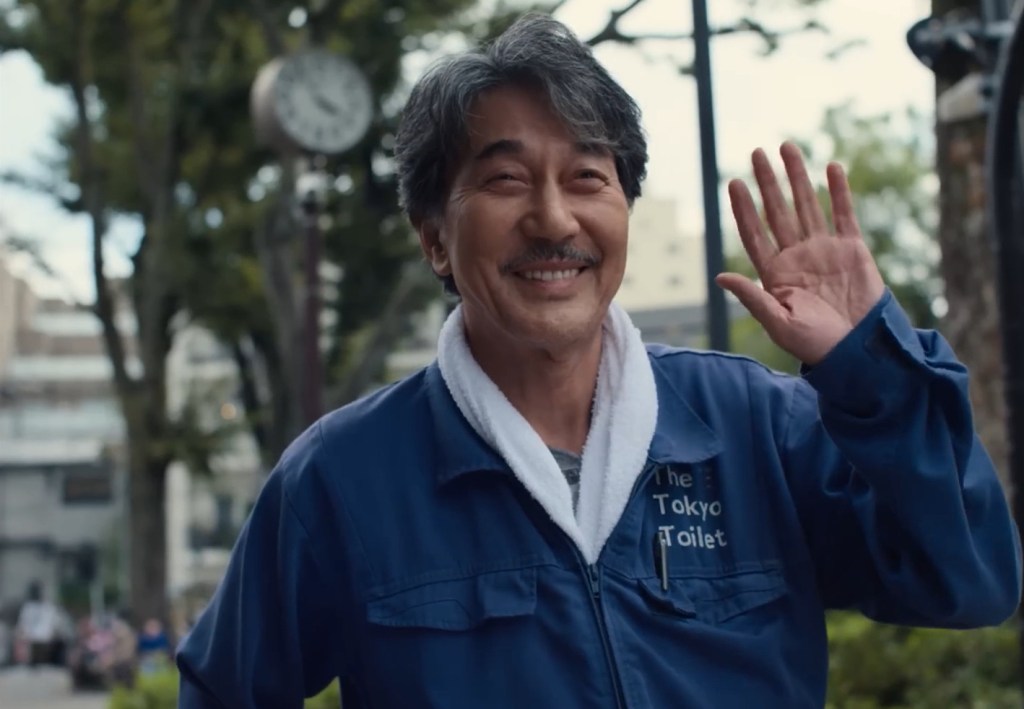
8. Perfect Days
Though Academy-eligible in 2023, Wim Wenders’ first Japanese-language film was only properly available to virtually any of the public in 2024. So it’s on this year’s list because not to commend this masterful meditation due to it falling between two release schedule stools would be the definition of dumb.
Perfect Days is the story of Hirayama (Kōji Yakusho), a middle-aged cleaner of Tokyo’s futuristic but still covered-in-piss public toilets. The film accompanies Hirayama’s simple and repeated daily routines as he wakes up, goes to work, and returns home alone to sleep and start the cycle anew. What a dreadful, narrow life! Nothing of the sort. By cataloguing Hirayama’s careful attentions, Perfect Days celebrates the life-giving power of taking notice of the world around us, showing the honor in a job—any job—well done, and the nourishment in simplicity. It’s a small film, but a film that portrays a man who’s rejected wealth and glamour and won’t yoke himself to the hedonic treadmill isn’t small at all. It’s towering. – LM

7. Nickel Boys
Other films have toyed with perspective and point-of-view storytelling, but none have felt as innovative or as immensely vital as RaMell Ross’ first narrative feature, Nickel Boys. A thinly fictionalized portrait of the nightmarish Dozier School for Boys in the Florida Panhandle, the picture places viewers squarely in the shoes of two young Black adolescents in 1962 America. One of them, Elwood (Ethan Herisse), is our main POV character with the camera often turning and surveying a scene as Elwood takes in his predicament as a bright, college-bound believer in the Civil Rights movement before he is wrongfully sent to the Nickel Academy reform school for a crime he didn’t commit. The other protagonist is Turner (Brandon Wilson), a far more cynical and streetwise kid who may be the only one able to get Elwood through Nickel alive.
Like the sinister horrors that continue to be unearthed around the real-life Dozier, Nickel Academy is an irredeemably corrupt and evil place where Black children are beaten and whipped as forms of corporal punishment, and sometimes much worse, with the surrounding grounds littered with unmarked graves for the kids the white staff claim simply ran away. We rarely see this abuse firsthand, but we feel it as Elwood does, hearing the muffled screams off-screen occurring in another room, and we live with it as Turner’s sympathetic but undisturbed face explains to Elwood this is the way the world is away from campus.
The beauty and power of the film is more than its POV presentation; it’s how the movie shrewdly and sparingly changes perspective between Elwood and Turner, sometimes in the same scene, just as it captures the elasticity and puzzlement of memory, jumping throughout the timeline of Elwood’s life. It exists as a confounding collage of long-buried, but never forgotten, torments and ghosts; sorrows and joys as the narrative bounces between Nickel and Elwood’s idyllic childhood with his grandmother (a luminous Aunjanue Ellis-Taylor) on Christmas Eve. It is challenging, interactive cinema. It is also a masterpiece that will never leave you. – DC
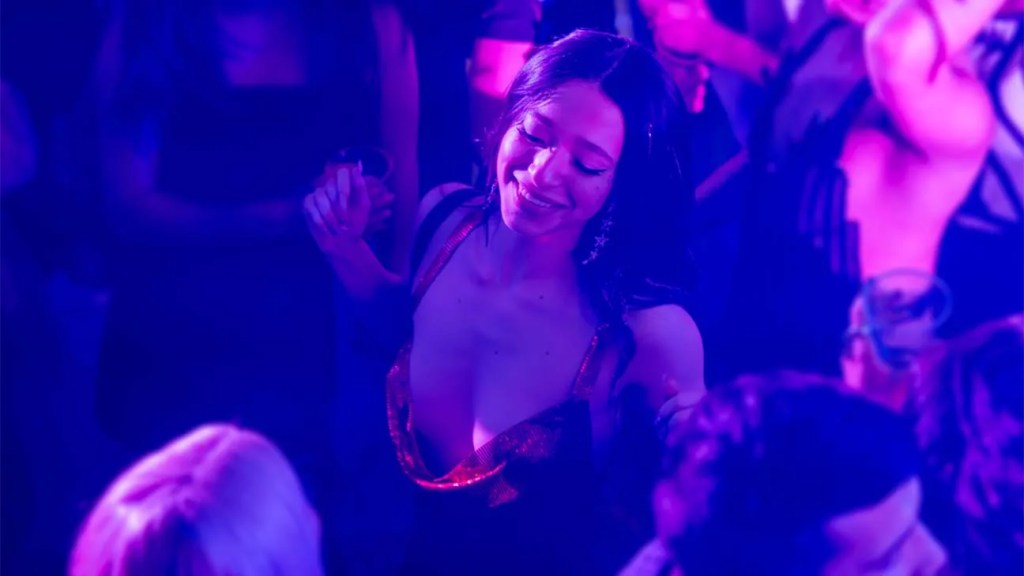
6. Anora
Typically Russian tough guys with big muscles and monosyllabic dialogue are used as shorthand to signal a certain kind of movie: something violent, mean, formulaic. Sean Baker’s Anora is none of those things. While some folks definitely get hurt, it’s mostly the Brighton Beach toughs who dare cross paths with Ani Mikheeva, aka Mikey Madison’s instantly iconic Anora, a kaleidoscopic and heartfelt performance that is easily the best riff on Harley Quinn we got all year. A true Carnisie Girl, this bold creation by Madison and Baker transforms a movie about a sex worker marrying the callow son of a Russian oligarch (Mark Eydelshteyn) into a one-of-a-kind screwball comedy.
From her diminutive frame to the Christmas tinsel kept permanently in her hair, Ani is a force that is easy to underestimate. But not for long. She quickly dominates the room and provides Baker with enough manic energy to serendipitously shift tones and genres about every 45 minutes, traipsing between a deceptive Pretty Woman love story to that surreal absurdism with broken noses and shattered dreams. Finally, then, it becomes something a lot deeper of feeling and sentiment than the film’s neon-kissed aesthetic might suggest. Through it all is anchored the year’s best performance, a one of a kind creation that hides oceans beneath a glossy surface. – DC
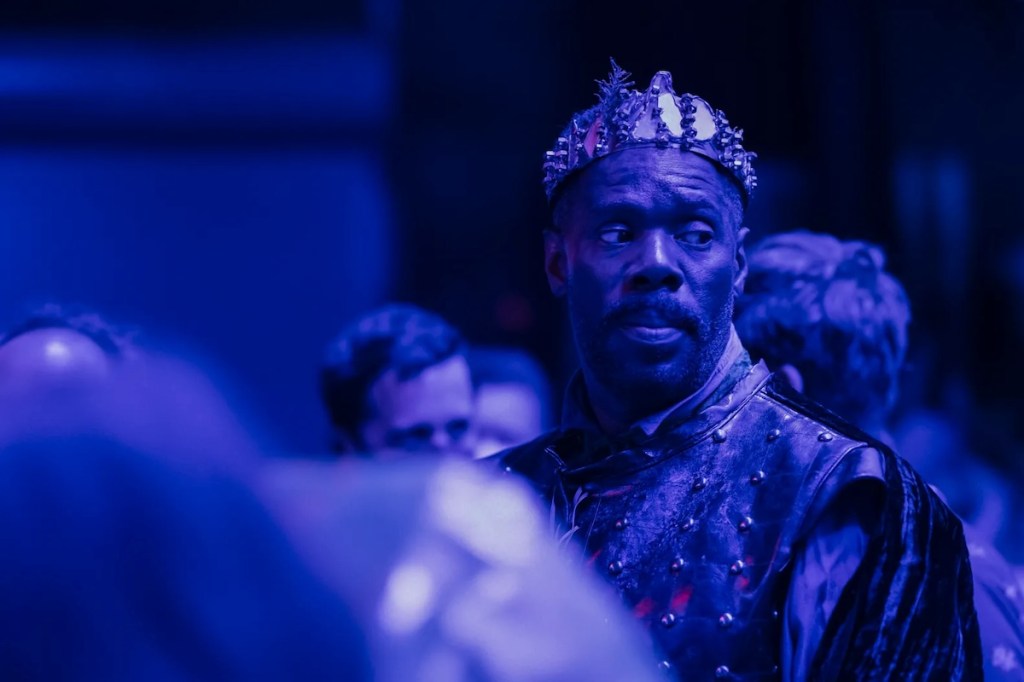
5. Sing Sing
Sing Sing is a joyous film. Yes, this true story takes place almost entirely within the walls of the titular maximum security prison, but one cannot help but smile while watching the prisoners stage Breakin’ the Mummy’s Code, a ludicrous play that involves time travel, cowboys, and even Freddy Krueger. Part of that energy comes from star Colman Domingo as Divine G, an inmate and true believer in the Rehabilitation Through the Arts program that helps the men produce their play. So committed to the program’s goals is Divine G that he swallows his pride when a major role goes to the mercurial and sometimes belligerent Divine Eye (Clarence Maclin, portraying himself) rather than himself.
The joy that Domingo, Maclin, and the cast (most of which consists of former prisoners, portraying themselves) bring to Sing Sing never distracts from the inhumanity of their situation. Director Greg Kwedar, who co-wrote the script with Clint Bentley, constantly reminds viewers that these men are caged, surrounded by barbed wire and concrete, through which only the slightest rays of sun can break through. So the joy of Sing Sing is it highlights the evils of the incarceration system while showing how one can spiritually overcome that horror, making the movie all the richer for it. – JG
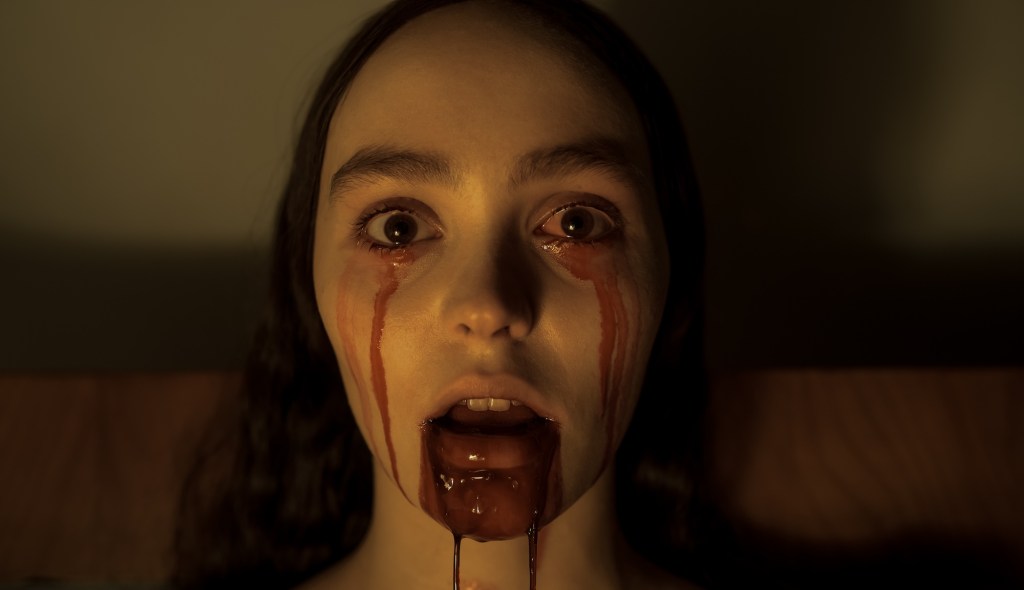
4. Nosferatu
Robert Eggers has been trying to make his version of Nosferatu for at least a decade. Perhaps longer since he got his start as an artist by writing a play in school based on the 1922 F.W. Murnau silent masterpiece. The wait has proven worth it since the terror he finally crafted can stand comfortably beside both Murnau and Werner Herzog’s 1979 interpretations of Bram Stoker’s Dracula tale. You probably know the story, but you have never seen it rendered as beautifully, or tragically, as in this Jungian lamentation about surrendering the flesh to Death Himself.
With a superb cast that includes Willem Dafoe, Nicholas Hoult, Aaron-Taylor-Johnson, an unrecognizable Bill Skarsgård as the vampire, and a star-making turn by Lily-Rose Depp as the object of the cadaver’s ravenous lust, Nosferatu lives up to Eggers’ description to us of the film being like “if Merchant Ivory did a Hammer Horror movie.” But it’s so much more enthralling and lurid than that. This is a historically grounded fairy tale in the original folk meaning of the term; a lascivious embrace of darkness and decay captured in dreamlike wonderment. It is a new horror classic. – DC
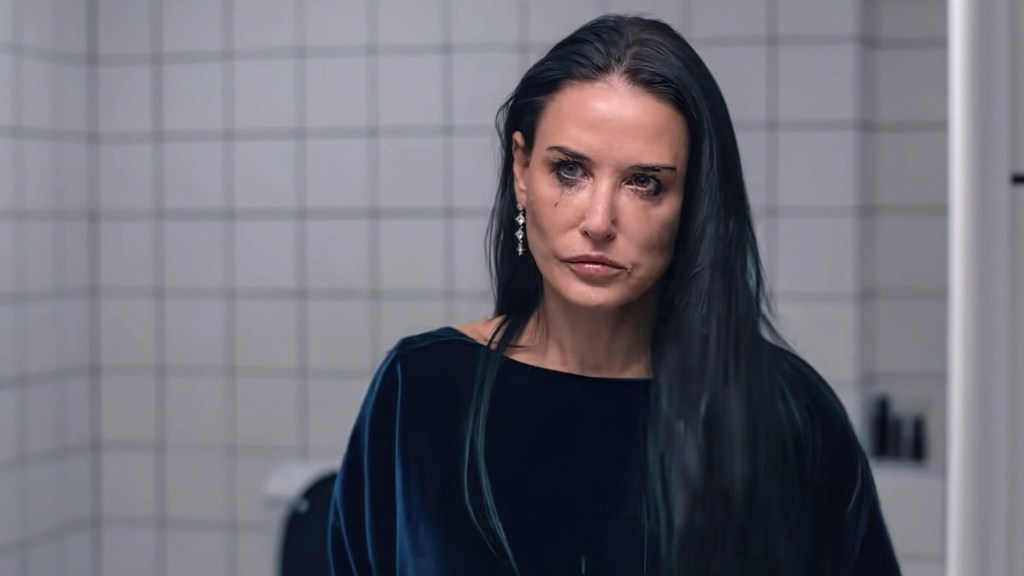
3. The Substance
Sometimes a film will be subtle about its metaphor, quietly obscuring it into a narrative or cryptic image that remains open to interpretation. Other films scream their intent in bright neon lights with the fury of a thousand suns. Coralie Fargeat’s The Substance is 100 percent the latter. It’s also deeply (and darkly) entertaining, imbuing its righteous anger at the double standards placed on women’s appearances, especially in the entertainment industry, with a scathing sense of irony and an absurd amount of merry bloodletting.
Much of that life force flows, figuratively and literally, from a transcendent Demi Moore who is back in a lead role as Elisabeth Sparkle. Elisabeth is a former Oscar-winner who was fired from a janky morning show on her 50th birthday by an even older, grotesque TV executive (Dennis Quaid). Yet when Elisabeth gets a kind of second chance due to a mysterious substance that causes her to birth Ridley Scott-style a younger, more nubile version of herself, Sue (Margaret Qualley), the next generation ends up playing the same patriarchal games as her forbearers, winding up in the same unwinnable job and convinced that unlike the older woman she is time-sharing a body with, age will never touch her flawless skin. The Cronenbergian terrors that await both sides of the coin are ghastly. They’re also delightful as they’re sprayed like holy hell over all. – DC
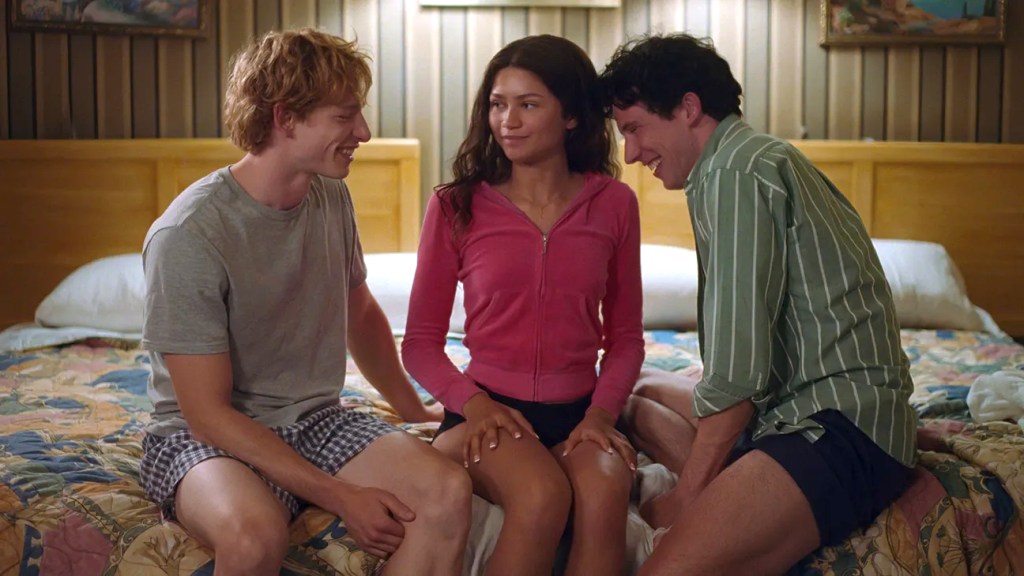
2. Challengers
What a film about tennis that isn’t really about tennis! What a film about sex that doesn’t actually have all that much sex in it! What a film about a love triangle where the woman in the middle isn’t really that important, after all! Luca Guadagnino’s sporting-romantic-thriller is an astonishing piece of filmmaking which jumps around timelines structured around one epic game of tennis, keeping the audience in the dark about the context and possible outcome until the very final euphoric strokes. Zendaya plays tennis star Tashi Duncan, the object of affection of upcoming players and best friends Art (Mike Faist) and Patrick (Josh O’Connor). Complicated relationships, competitiveness, mind games and and desire muddy the waters between the three pushing toward an absolutely electric climax, which puts the audience through a dizzy physical and emotional washing machine as the camera flits and spins, turning us into the ball.
Incredible performances all round, memes for days, and if you happen to enjoy tennis it’s even more of a treat: not required though, this is just terrific cinema. – RF
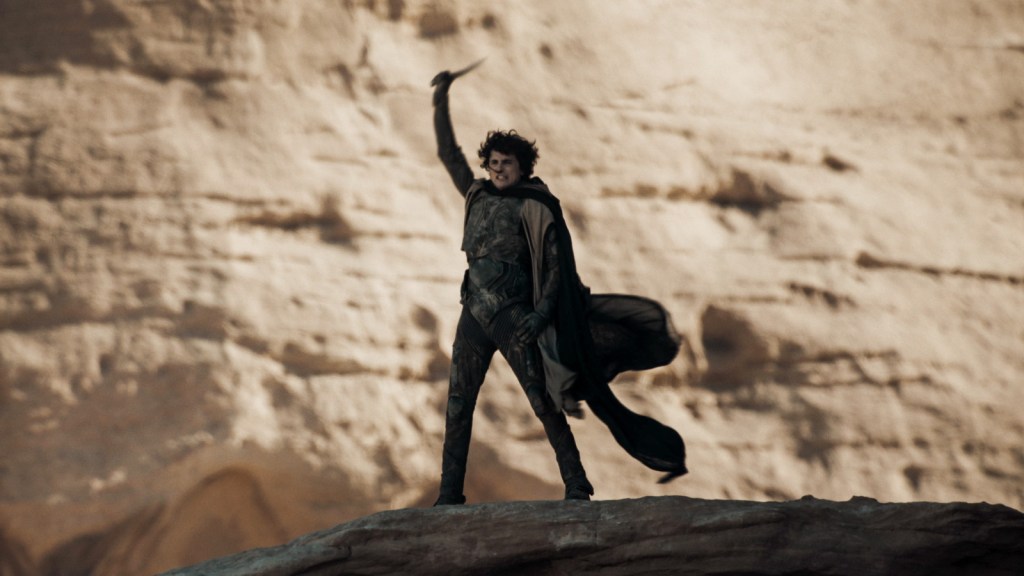
1. Dune: Part Two
There have been more than a few truly great movies in 2024, but the one which will probably live on like a legend worthy of the Lisan al Gaib remains Denis Villeneuve’s triumphant completion of his Dune adaptation. Thrillingly grandiose in a manner of moviemaking they’re not supposed to attempt anymore, Dune: Part Two harkens back to the sweep of David Lean and the biblical epics of yore, even as it coats such fancies with new, all-encompassing shadow.
Villeneuve and his collaborators gently extract the cruel subtext which always hid there in Frank Herbert’s text, turning the ascent of Paul Atreides (Timothée Chalamet), the boy hero who on the page inspired Luke Skywalker, into a tragedy of intergalactic scale. The cunning of the film is it highlights this in the intimacy of Paul’s betrayals, be that of his great love (Zendaya), a sister who is yet to be born, or that of friends he has turned into fanatics who will spread his holy word through the cosmos by way of the sword.
Villeneuve captures this bitterly subversive epiphany in blockbuster drag by building an epic more surefooted than its 2021 predecessor. Dune: Part Two confidently floats between planets, cultures, and even color schemes as the Harkonnen homeworld is realized in a silvery black and white that is at once hypnotic and strangely repellent. The film has the elegance and grandeur to convince the viewer the fate of billions rests on a knife fight between cousins occurring in the glow of a blood-red sunset. Hollywood escapism has rarely been so foreboding. – DC
The post The Best Movies of 2024 appeared first on Den of Geek.
From https://www.denofgeek.com/movies/the-best-movies-of-2024/

